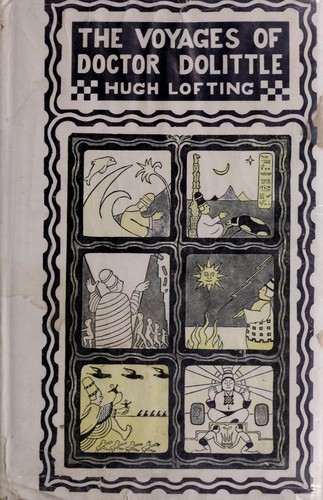

It is a lighthearted, colorfully illustrated book of poems for children. Porridge Poetry (1924) is the only non-Dolittle work by Lofting still in print. They concern the titular old woman, her pets (with whom she can speak) and the animals who help her out of trouble. Tubbs (1936) are picture books aimed at a younger audience than the Doctor Dolittle books.

The Story of Mrs Tubbs (1923) and Tommy, Tilly, and Mrs. The series has been adapted for film and television many times, for stage twice, and for radio. Eight more books followed, and after Lofting's death two more volumes, composed of short unpublished pieces, appeared. The Story of Doctor Dolittle: Being the History of His Peculiar Life at Home and Astonishing Adventures in Foreign Parts Never Before Printed (1920) began the series and won the Lewis Carroll Shelf Award in 1958.The sequel, The Voyages of Doctor Dolittle (1922), won Lofting the prestigious Newbery Medal. The stories are set in early Victorian England, (in and around the 1840s, according to a date given in The Voyages of Doctor Dolittle). Hugh Lofting's doctor from Puddleby-on-the-Marsh who could speak to animals first saw light in the author's illustrated letters to children, written from the trenches during World War I when actual news, he later said, was either too horrible or too dull. "It does not bother me any more now, but I still feel there should be a category of 'seniles' to offset the epithet."

"For years it was a constant source of shock to me to find my writings amongst 'juveniles,'" Lofting reported. Lofting was married three times and had three children, one of whom, his son Christopher, is the executor of his literary estate. Seriously wounded in the war, he moved with his family to Connecticut in the United States. Not wishing to write to his children of the brutality of the war, he wrote imaginative letters that were the foundation of the successful Doctor Dolittle novels for children. He traveled widely as a civil engineer before enlisting in the Irish Guards to serve in World War I. His early education was at Mount St Mary's College in Sheffield, after which he went to the United States, completing a degree in civil engineering at the Massachusetts Institute of Technology. Lofting was born in Maidenhead, England, to English and Irish parents. Hugh Lofting was a British author, trained as a civil engineer, who created the character of Doctor Dolittle - one of the classics of children's literature.


 0 kommentar(er)
0 kommentar(er)
